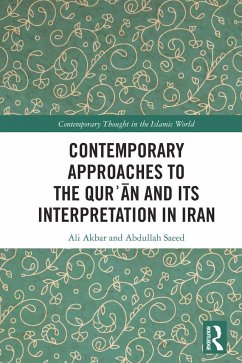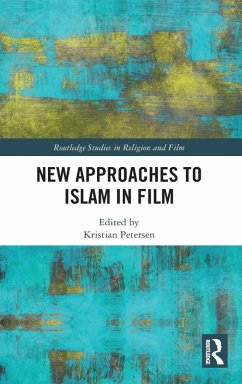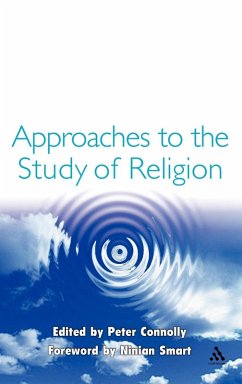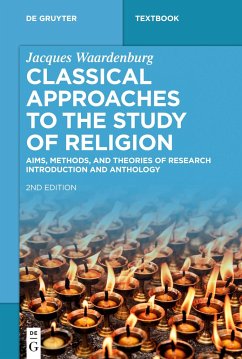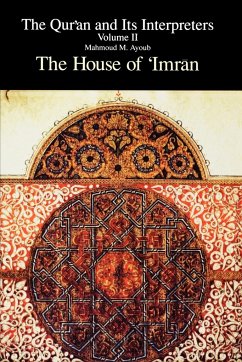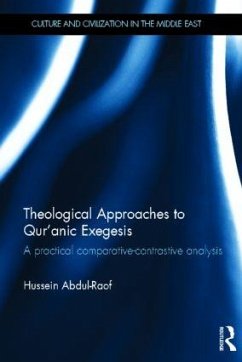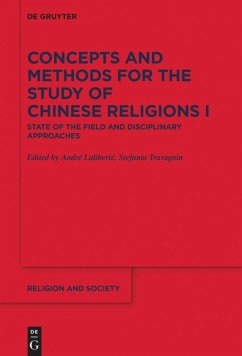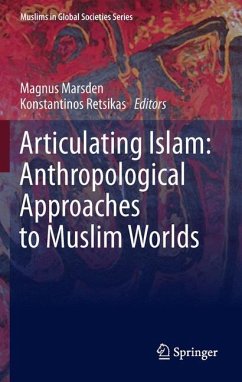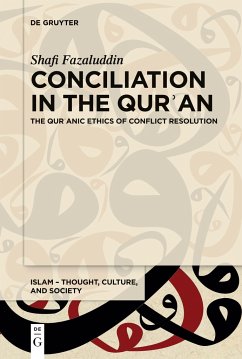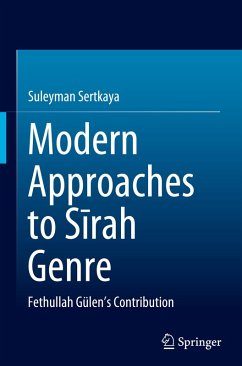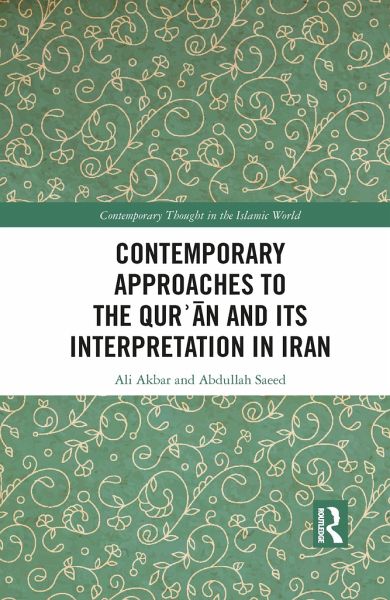
Contemporary Approaches to the Qur¿an and its Interpretation in Iran
Versandkostenfrei!
Versandfertig in 1-2 Wochen
55,99 €
inkl. MwSt.
Weitere Ausgaben:

PAYBACK Punkte
28 °P sammeln!
This book sets out how contemporary Iranian scholars have approached the Qur¿¿n during recent decades. It particularly aims to explore the contributions of scholars that have emerged in the post 1979-revolution era, outlining their primary interpretive methods and foundational theories regarding the reading of the Qur¿¿n. Examining issues such as the status of women, democracy, freedom of religion and human rights, this book analyses the theoretical contributions of several Iranian scholars, some of which are new to the English-speaking academy. The hermeneutical approaches of figures such...
This book sets out how contemporary Iranian scholars have approached the Qur¿¿n during recent decades. It particularly aims to explore the contributions of scholars that have emerged in the post 1979-revolution era, outlining their primary interpretive methods and foundational theories regarding the reading of the Qur¿¿n. Examining issues such as the status of women, democracy, freedom of religion and human rights, this book analyses the theoretical contributions of several Iranian scholars, some of which are new to the English-speaking academy. The hermeneutical approaches of figures such Abdolkarim Soroush, Muhammad Mojtahed Shabestari, Mohsen Kadivar, Hasan Yousefi-Eshkevari, Abolqasem Fanaie and Mostafa Malekian are presented and then analysed to demonstrate how a contextualist approach to the Qu'ran has been formed in response to the influence of Western Orientalism. The effect of this approach to the Qu'ran is then shown to have wide-ranging effects on Iranian society. This study reveals Qu'ranic thought that has been largely overlooked by the West. It will, therefore. Be of great use to academics in Religious, Islamic and Qur¿¿nic studies as well as those studying the culture of Iran and the Middle East more generally.




